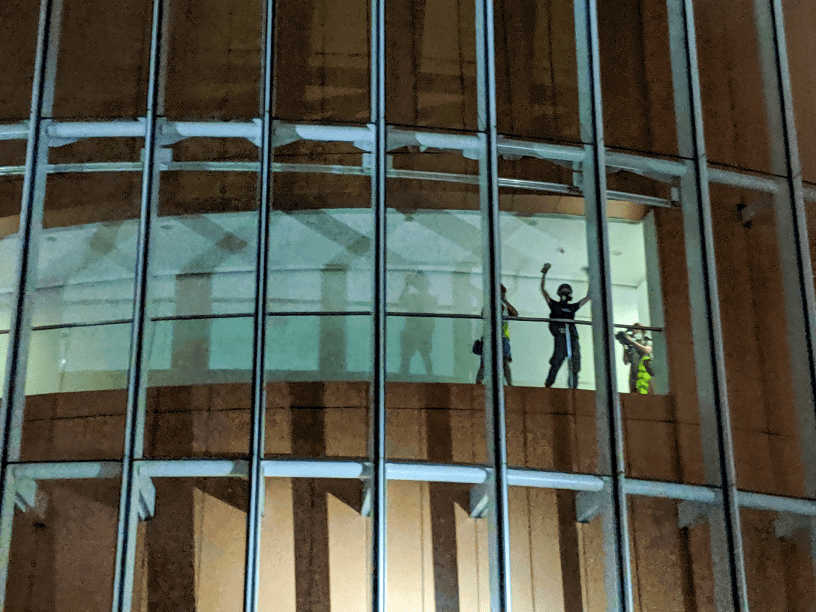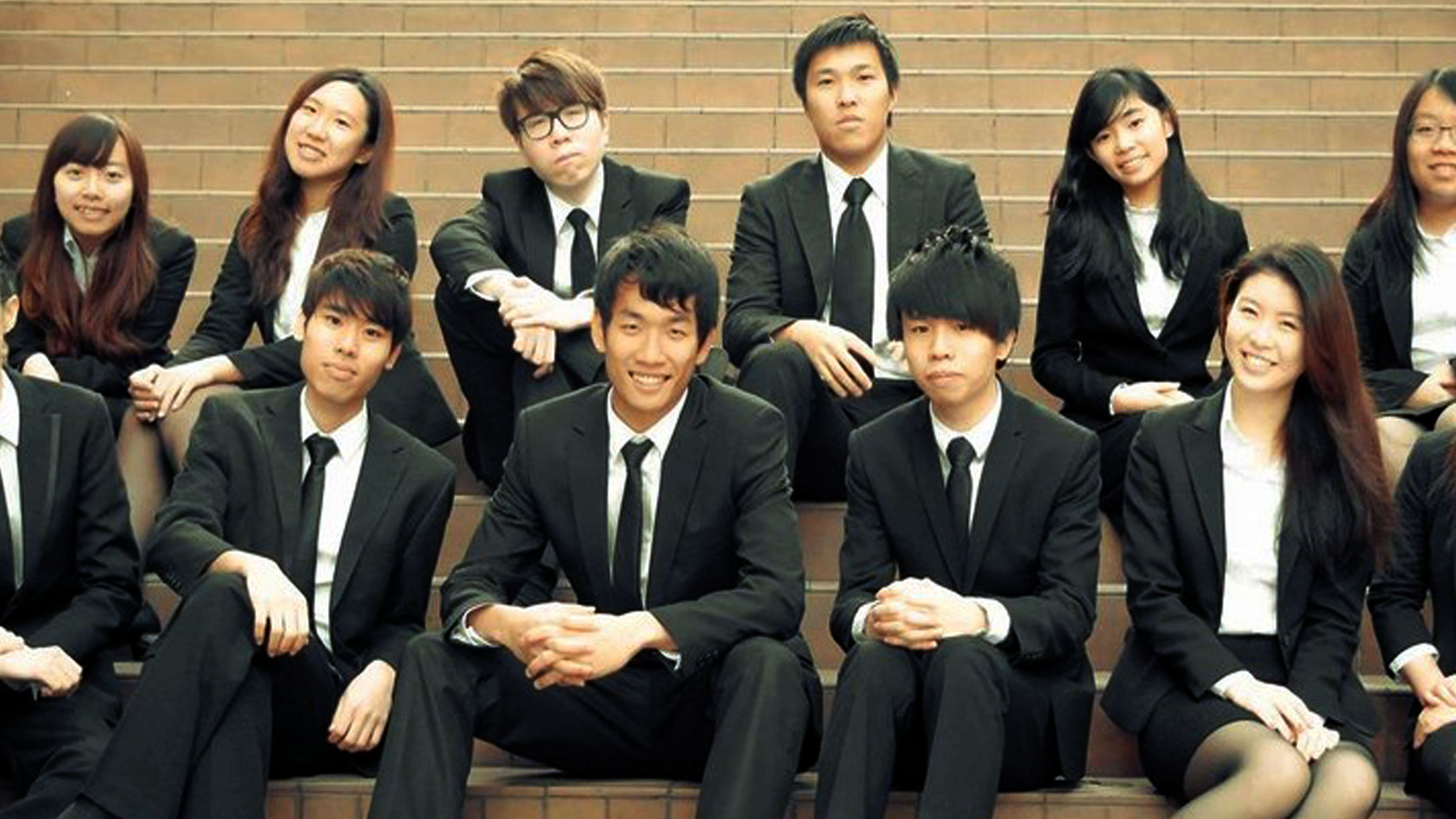I felt a bit ashamed that I hadn’t recognized him earlier. His image that had been circulating all over the internet at that point, one of the most striking images of Monday’s attempted occupation of the Hong Kong Legislative Council (LegCo): A young protester removing his mask, revealing his identity in order to urge the occupiers to stay in the LegCo. It was a call to build public legitimacy for the occupation; he bared his face to show that, having broken into the LegCo complex for the first time in Hong Kong history, there was “no return.”
He did this in the knowledge that he will likely face up to ten years in prison on charges of “rioting.” He stated as much when he removed his mask. If there’s anyone connected with the LegCo occupation the Hong Kong government will try to make an example of, it’ll be him. Among the LegCo occupiers, he alone removed his mask. But, despite having seen the image, I only recognized him after he gave an interview to the South China Morning Post (SCMP).
I knew him alright. He is Brian Leung Kai-ping (梁繼平), the 2013 editor-in-chief of the Hong Kong University student union journal, The Undergrad (學苑). I’d first met him three years ago, in September 2016, during a brief trip to Hong Kong. A Taiwanese activist friend, then attending college and also part of The Undergrad, wanted to meet up. He suggested we could join some Hong Kong activists. We ended up having coffee with Brian and some others.
We met a second time in March 2018, at a conference at UC Berkeley for the four-year anniversary of the Sunflower and Umbrella Movements, where he and I were both presenting. The conference was attended by activists and academics who had studied the movements or had been involved in them. At the conference, he was “Hong Kong Brian” and I was “Taiwan Brian.” We’re about the same age, too. He’s 25, I’m 27.
People compared the attempted occupation of LegCo to the Sunflower Movement’s monthlong occupation of the Taiwanese legislature in 2014, a movement in which I took part. The Hong Kong occupiers scrawled in graffiti on the wall of the LegCo chambers, “Sunflower HK” (太陽花 HK). Brian himself brought up the Sunflower Movement in his SCMP interview.
But in the end, most of the Hong Kong occupiers decided to withdraw, having come to the conclusion that the risks outweighed the benefits.
Nobody can be sure of the consequences anymore. Over 70 have been arrested in connection with the attempted occupation. One of those arrested has alleged assault by the police, and being threatened with deportation to China. The cause of the demonstrations in Hong Kong—the proposed extradition law—has not yet been passed, nor has it been completely withdrawn. Should it pass, it’s not impossible that those presently arrested could be deported to China to face charges. If so, who knows how many years it will be until we see them again, if we ever see them at all?
One of the most chilling videos to emerge from the LegCo siege shows protesters returning to drag four remaining demonstrators from the complex who’d refused to leave, shortly before the midnight deadline set by the police. When asked by a Stand News reporter why they were risking a return to the LegCo, a demonstrator broke into tears as she responded, “Everyone is scared, but we are even more afraid of not being able to see [the four of them] tomorrow.” The Stand News reporter, who has acquired the nickname of “Stand News Sister” (立場姐姐) for her livestream reports on the Reddit-like Hong Kong online forum, LITHK, began to cry as well.
Protesters took the risk to retrieve the occupiers out of solidarity. They shouted “leave together” and took away the teammates since police action was imminent & could be blocked in. “We are all worried, but we are even more worried we won’t see them tmr"https://t.co/Uabe1HYxE7 pic.twitter.com/TKl5qWUfMh
— Joshua Wong 黃之鋒 😷 (@joshuawongcf) July 5, 2019
I may be a pretty sappy guy in general, but it’s hard for me to watch the video without crying too. And yet, it keeps coming across my Facebook or Twitter feeds when I’m in public places, like on the subway or the bus. I can’t make out whether Hong Kong Brian was one of the four who refused to leave, but that seems likely.
The callousness of society truly terrifies me. There were many in Hong Kong who thought that the occupation of LegCo went a step too far. International media, in many cases, reported on occupiers as “violent” and having “trashed” LegCo.

In reality, that was hardly the case. The protestors trashed pictures of Hong Kong’s past and present leaders, but they took care not to damage some of the priceless artifacts on display in LegCo. They even left money for drinks they took from refrigerators in the LegCo complex. Graffiti scrawled in LegCo called attention to not only Hong Kong’s plight, but also that of the one million Uighurs imprisoned in Chinese prison camps in Xinjiang for being Muslim.

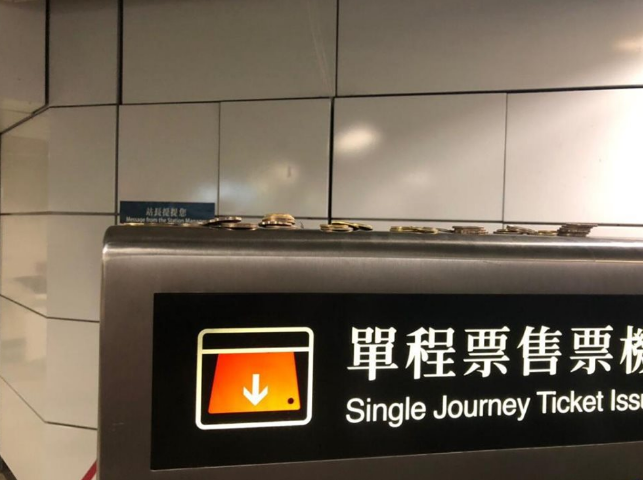
And as Brian pointed out in the interview with the SCMP, three people (now four, with others having been talked out of suicide attempts) have killed themselves since the movement began. “Compared with the death of three people who used their lives to deliver a message, does the damage to several glass frames even count?” That the answer is not self-evident to many, whether in Hong Kong or internationally, terrifies me.
The young people who’ve killed themselves, evidently in protest, are martyrs to this movement, even if some of them had existing issues exacerbated by the current political situation in Hong Kong. Yet I would like to point out that this kind of phenomenon is not unusual for social movements. Malachi Ritscher immolated himself in Chicago in protest of the Iraq War in 2006. The Arab Spring began with the self-immolation of 26-year-old street vendor Mohamed Bouazizi in 2010.
There were several suicide attempts during the Sunflower Movement. One girl slit her wrists in the Legislative Yuan and drew a heart on the wall of the building using her blood. A man tried to douse himself with gasoline and light himself on fire. Several months before, a truck driver had tried to ram the Presidential Office. Just by chance, none of them died. And so these incidents are largely forgotten.
During the 2008 Wild Strawberry Movement, the monthlong occupation of Liberty Plaza in Taipei that culminated in the Sunflower Movement in 2014, a man immolated himself and died—two of my friends put out the flames. In 2015, when the Kuomintang government attempted to institute a high school curriculum whitewashing crimes committed by the Kuomintang during the authoritarian period, a student killed himself, leading high school students to occupy the Ministry of Education for a week. This student had claimed beforehand that her death would reinvigorate the movement.
One of the recent suicides in Hong Kong claimed the same for his movement.
The situation in Hong Kong is so much more immediately dire in comparison with Taiwan, but I can remember how, at the end of the Sunflower Movement, people were starting to break down, mentally as well as physically; some began to talk about their willingness to die. The situation in Hong Kong is starting to remind me of that.
Seeing your friends show up in the news, over and over again, is a strange aspect of participating in the public sphere of youth activists which spans Taiwan, Hong Kong, and even China. It means that you know some of the most interesting people around—people with the bravery to risk everything to shoulder the burdens of the society they live in. On the other hand, I suspect that it also means that in years to come, you may see some of your friends become martyrs for the things they believe in.
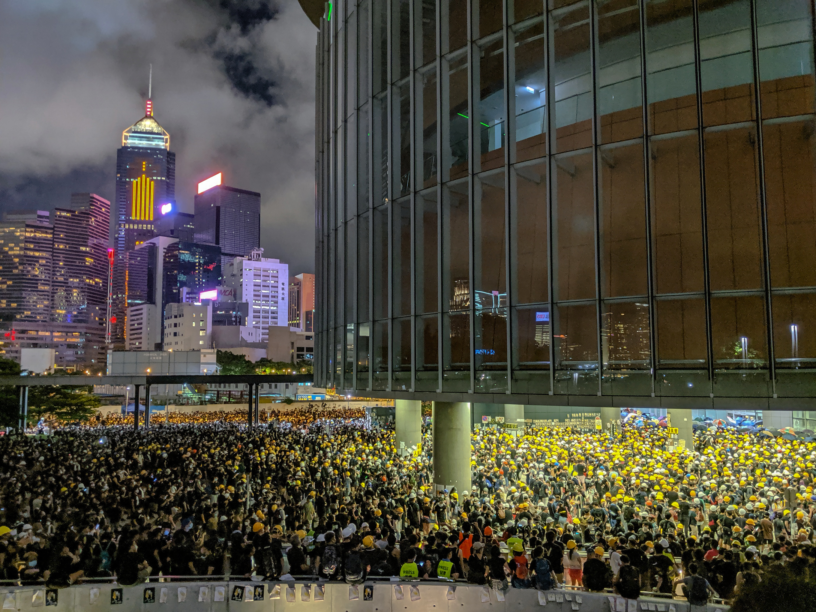 Studio Incendo/Flickr
Studio Incendo/FlickrAfter I took part in a failed attempt to occupy the Taiwanese executive branch of government during the Sunflower Movement, I was shocked at the public reaction against the occupiers, even though they had been the ones confronted with overwhelming police violence. The public view was that protesting students had crossed a line by attempting to occupy another building to escalate the movement in the face of silence from the government. The conservatism of social morality, not to mention its mercuriality, can be a frightening thing to see. But a society sometimes devours its young, that is, its brightest and most promising. Sometimes the society you try to struggle on behalf of will decide that you are, in fact, the enemy.
After I heard that it had been Brian who’d taken off his mask in the LegCo, I thought about the UC Berkeley conference we’d attended together. Late one evening, those of us who were in our twenties or early thirties—who included Lin Fei-fan and Alex Chow, core figures of the Sunflower and Umbrella Movements respectively—climbed up a steep hill together and took in a good view of the campus at the top. We would likely have gotten beer, but there was nowhere open nearby. We saw a deer and someone shouted at it, in English, “Deer! Do you have beer?”
We climbed back down again, and the next day at the conference, all of us had shoes covered with mud. I’m still not sure why we did that, except we’re young, I guess. Youth itself might explain why social activists are driven to do all sorts of things, take all kinds of risks; quite often we can’t quite explain to ourselves why.
This is the fate we’ve chosen for ourselves, and perhaps we’ll all meet horrible ends, if and when the tanks of the People’s Liberation Army roll in and the world looks on uncaringly. Sometimes I think about how it’s not impossible that I’ll meet my own end in some Chinese prison camp, after China invades Taiwan. The prospects are far worse for Hong Kong, which is separated from China by a mere river, when Taiwan has the Taiwan Straits separating it from China.
Since I was in Hong Kong three weeks ago, during the worst of the police violence, I’ve been to London and Hualien, on the eastern coast of Taiwan. I’d been invited to give a series of talks at a conference in London and to DJ at a music festival in Hualien. I thought it’d be too awful to the organizers of both events if I were suddenly to bail and run off to Hong Kong. I’ve organized events myself where speakers or performers suddenly bailed at the last minute. I didn’t want to do that to someone else.
But I kept writing reports on Hong Kong anyway. The first thing I did many mornings was to immediately tune into livestreams and write. At least outside of Hong Kong, I could be monitoring multiple streams at once to see multiple perspectives, keeping my eyes glued to live updates. My being on the ground would likely have made no difference, but a part of me felt like it was a personal betrayal that I wasn’t there. I spent time with members of the Hong Kong diaspora who felt the same way.
In London, I spoke on a panel organized by London-based Taiwanese and Hong Kong groups that were formed after the Sunflower and Umbrella Movements, respectively. I also co-wrote a piece with a Taiwan-based Hong Kong journalist comparing and contrasting the LegCo occupation with the Sunflower Movement.
Another Taiwan-based Hong Kong journalist commented to me that Hong Kong journalists outside of Hong Kong were still contributing through conducting research from afar, and coordinating with their counterparts on the ground. For example, she had been examining livestream footage to determine the kinds of guns that Hong Kong police were carrying and what kind of ammunition they were capable of firing—rounds of tear gas, bean bags, rubber bullets—and possibly, as some suspected but have been unable to prove, live rounds.
She said that she had eventually gotten tired of directing other journalists remotely, and flown over briefly herself. I guess this kind of thing is only possible in the age of social media. Sometimes my team and I coordinate this way as well.
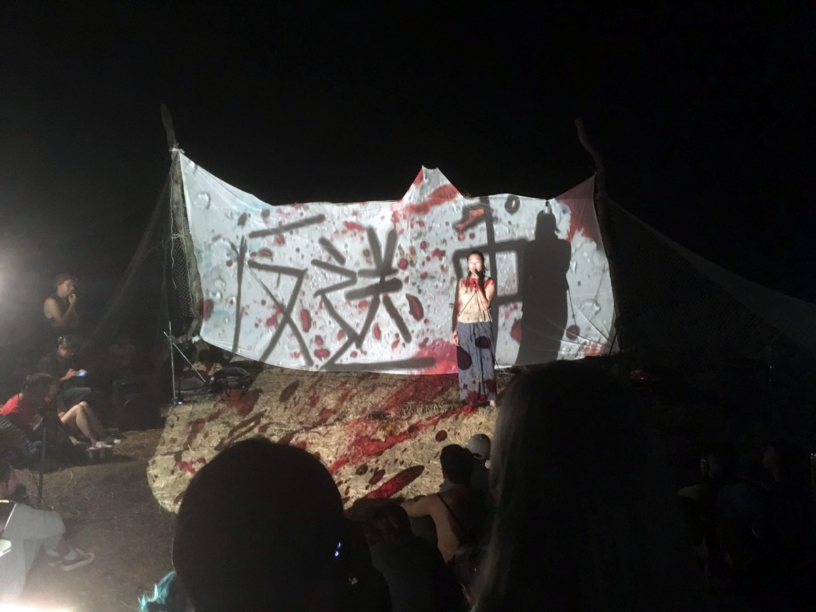
In Hualien for the music festival, I was surprised that numerous bands brought up Hong Kong in remarks, and that there were a few performers from Hong Kong. There was even a makeshift lecture-performance about the protests in Hong Kong. In retrospect, I would have played a Hong Kong-themed DJ set, but the idea only occurred to me while on the train to Hualien, by which time it was too late to prepare that from scratch.
So I guess there are always ways to contribute from afar.
But I knew, from his posts on social media, that distance was one of the things that Brian struggled with. He was doing a Ph.D. at the University of Washington, having made the decision to go abroad, to learn more, and to improve himself during a period in which it seemed like Hong Kong was at a political impasse. Yet, based on what he posted, he seemed uneasy with what he perceived as his failure to stay and fight. Who knows if he’ll ever finish that Ph.D. now?
A lot of Hong Kongers decided to leave in the wake of the Umbrella Movement. Some, like Brian, went abroad to study. Some fled to avoid charges, particularly after activist Edward Leung, who is currently 28 years old, was sentenced to six years in jail last summer. Some of them ended up in Taiwan, actually.
Lam Wing-kee, the only one of the five Causeway Bay Booksellers to have escaped being kidnapped to China, is currently seeking asylum in Taiwan. Another activist, Lee Sin-yi, who like Leung had been facing years in jail, fled to Taiwan and subsequently disappeared. She was nineteen years old at the time. The National Immigration Agency claims it is searching for her, having discovered there is no record of her leaving Taiwan.
I anticipate another wave of asylum seekers to Taiwan soon, though Taiwan lacks the requisite laws to permit asylum seekers permanent residence. I hope to God the Taiwanese government is not tone-deaf enough to try deporting them, as has been suggested regarding Lam and Lee. (Taiwan’s poor handling of refugee cases so far is unpromising; a story I broke last year revealed that the government marooned two Chinese dissidents in Taoyuan International Airport for over one hundred days. One of them may have tried to kill himself by swallowing pills while there.)
I don’t know Brian’s status. He’s gone dark on social media. He said in the SCMP interview, “I am not yet a political dissident in exile,” which would suggest he’s still in Hong Kong. A later SCMP report states that he has already fled Hong Kong. Either way, who knows when I’ll see him again, if ever?
But here’s what I’d like to say to him, if he’s out there. “Man was born for love and revolution,” the words of Osamu Dazai. And also Gramsci: “Pessimism of the intellect, optimism of the will.” I intend to cling to those beliefs as long as I can, and I hope others can do the same.
